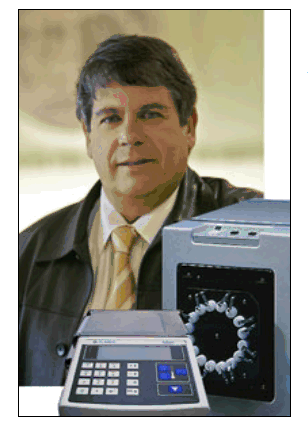 On the 34th anniversary of the birth of the first baby from a frozen embryo, the BBC World Service broadcast an interview with Alan Trounson the pioneer doctor who undertook the procedure.
On the 34th anniversary of the birth of the first baby from a frozen embryo, the BBC World Service broadcast an interview with Alan Trounson the pioneer doctor who undertook the procedure.
Zoe Leyland was born in Melbourne, Australia on 28th March 1984, helped on her way by Drs Trounson and Wood who made medical history. The decision to try 'test tube' fertilisation and embryo freezing was taken by Zoe's parents – her mother a 33 year old New Zealander and father a 38 year old British born Australian resident. Her mother had hormonal stimulation and produced eleven eggs which were frozen using a then new type of controlled rate freezer made by Planer plc. One of those frozen embryos became Zoe - who weighed in at about 5 lbs or 2.5 kilos.
The world's first 'fresh’ test tube baby was Louise Brown born in England in 1978, but Zoe came from an embryo frozen for a time before being thawed and implanted. To allow cells to survive liquid nitrogen temperatures (-196°C) the embryos had to be treated with cryo-protectant, then slowly frozen down in the Planer freezer with extreme precision using different temperature ramps, before being stored in liquid nitrogen. This controlled rate freezing procedure is now used in cell laboratories worldwide. The controlled rate freezing technique, originally suggested some fifty years ago by British Scientist Professor David Pegg, enabled Planer plc to pioneer the equipment and today many thousands of units are in constant use all over the world in stem cell labs, IVF, hospitals and research institutions. This controlled rate freezing is often needed before storing certain types of cells in liquid nitrogen – in areas such as cord blood banking, bone marrow transplants, botanical matter, semen, oocytes, botanical seeds, skin, ovarian tissue, heart valves and blood vessels.
For further information:
BBC World Service: The first frozen embryo baby
Forty years on ...Planer freezers

